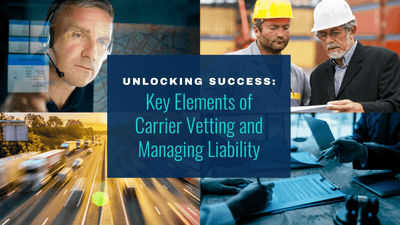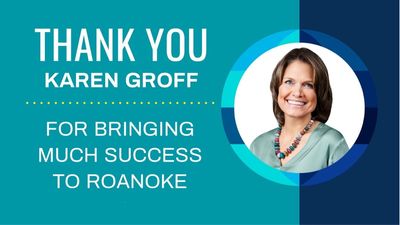February 14, 2018 | Industry Insights
Top 10 Reasons to Purchase the Rental Car Damage Waiver

By Jim Nerger, Vice President, Roanoke Trade
While most collision damage waiver (CDW) or loss damage waiver (LDW) fees are considered by many to be outrageous, consumers are best advised to purchase the CDW/LDW when renting a vehicle. These waivers may protect you against thousands of dollars in charges not covered under your personal auto policy. Since your auto insurance will likely cover things the rental agreement waiver won’t, having both is advisable.
Following are ten reasons to purchase the CDW/LDW:
1. Loss Valuation
The value of a rental car, according to virtually all rental agreements, is determined solely at the discretion of the rental company and may be significantly different from the “actual cash value without betterment” basis provision found in most auto policies.
2. Loss Settlement
If there is a disagreement on the value of the damage, your auto insurer may invoke the “appraisal” clause in the policy which may have a cost associated with it for you. In addition, most auto policies grant the insurance company the right to inspect and appraise damaged property before it is repaired or disposed of. Since the rental company may not wait for this, the insurance company might legally deny the claim or limit the coverage.
3. Loss Payment
The rental agreement may require immediate reimbursement for damages and it is not uncommon for the rental company to charge the renter’s credit card. This can create a significant debt, “max” out the card’s credit limit (perhaps shortening a vacation or business trip), result in litigation, etc.
4. Loss Damage Waivers (LDW)
Renters were once responsible only for collision damage to rental cars so you could buy a Collision Damage Waiver. Today most rental agreements make the renter responsible for any “loss” other than normal wear and tear regardless of fault and offer a Loss Damage Waiver. Typically you must have physical damage coverage on your auto policy for damage waivers to apply at all. Even so, you may be responsible for losses not covered by your auto policy. Similarly, your auto policy may cover losses not covered by the LDW such as operation by drivers not listed on the rental agreement. There is a need, therefore, for both policies and waivers.
5. Indirect Losses
Rental car agreements usually make you responsible not only for damage to the car, but also for the loss of rental income while the vehicle is being repaired or replaced, even if the rental company has unused vehicles sitting on the lot. We have heard of assessments as high as $2,000 for such charges. Many auto policies cover some loss of income but it is usually limited in amount and may be further restricted if the rental company refuses to share their fleet utilization log with the insurer in order to determine a fair loss of income. In addition, if damage is extensive enough, most rental companies will charge for the “diminished value” of the auto, something usually not covered by auto policies. We have seen documented charges of $5,000 and $8,000, and heard of one that was allegedly $15,000 on an upscale SUV rental.
6. Administrative Expenses
The rental contract may make the renter liable for various “administrative” or loss-related expenses such as towing (e.g., one insured was charged for a 230-mile tow), storage, appraisal, claims adjustment, etc. None of these expenses are typically covered by auto policies.
7. Other Insurance
Most auto policies provide excess coverage over other sources of recovery for damages to rental vehicles—damage waivers, travel policies, credit card coverages, etc. Other policies, credit cards, etc. might say that they are excess over your auto policy. The potential controversy over who pays what is obvious and can result in litigation. Often this is governed by state law, which is likely to be unknown at the time of rental. While it is unlikely, we have heard of insurance companies refusing to pay for damage to non-owned autos if there is primary insurance coverage on them.
8. Excluded Vehicles & Territories
Most personal auto policies only cover damage to motor vehicles that are private passenger autos, pickup trucks, and vans. In other words, vehicles such as motorcycle and motor home rentals are typically not covered. Most auto insurance coverage is limited to the U.S., its territories and possessions, Puerto Rico, and Canada, which could present a problem for some rentals. In addition, if the insured is renting a trailer (U-Haul, camper trailer, etc.), auto coverage is typically limited to only $500 – $1,500. The insured usually has no choice but to rely on the rental company’s damage waiver for coverage under these circumstances.
9. Excluded Uses & Drivers
Some auto policies do not cover business use of non-owned autos and some do only if it is a private passenger auto. Some policies have driver exclusion endorsements. For such business use or operation by excluded drivers, the only source of recovery might be the rental company LDW. Similarly, the auto policy may cover some drivers not automatically covered by the LDW. A related exposure involves valet parking. Most auto policies will cover you if a rental vehicle is damaged by a hotel or restaurant valet, but you won’t be covered under most LDWs because the valet is not an authorized operator. So, again, having both auto insurance and the damage waiver may be beneficial in certain circumstances.
10. Additional and/or Future Costs
An auto policy will almost certainly include a deductible in the range of $100-$500 or more that you will have to pay. Perhaps more important, payment for damage to a rental car may result in a significant premium increase (if not nonrenewal) via claim surcharges or loss of credits.
Keep in mind that any charges for damages incurred will be billed to the credit card of the person renting the car.
Jim Nerger, Vice President for Roanoke Trade located in Chicago, has four decades of insurance experience, more than 30 years of which have been at Roanoke Trade. He is responsible for sales and management of our Property & Casualty department in Chicago where he specializes in handling larger property & casualty risks involved in international trade.
Roanoke Trade specializes in insuring logistics service providers, including transportation companies, freight forwarders, warehouse operations and others. To speak to a Roanoke specialist about your insurance protection, please contact us at 1.800.ROANOKE (800.762.6653).













